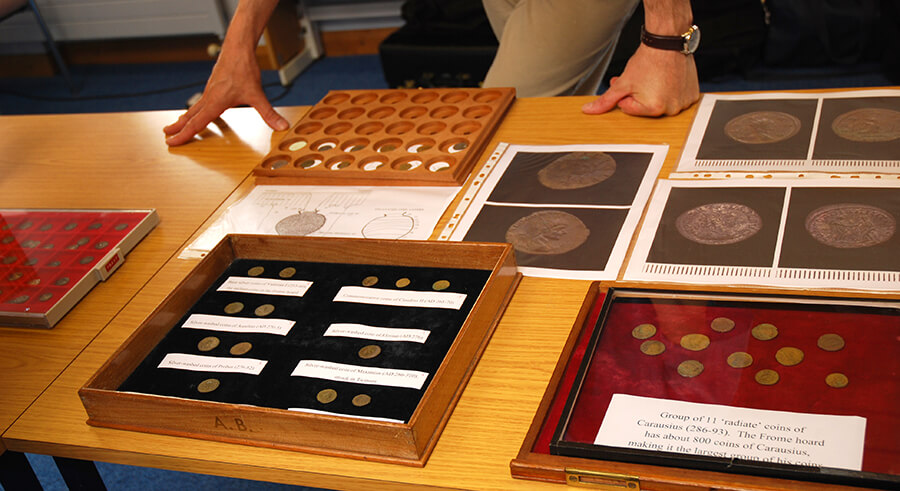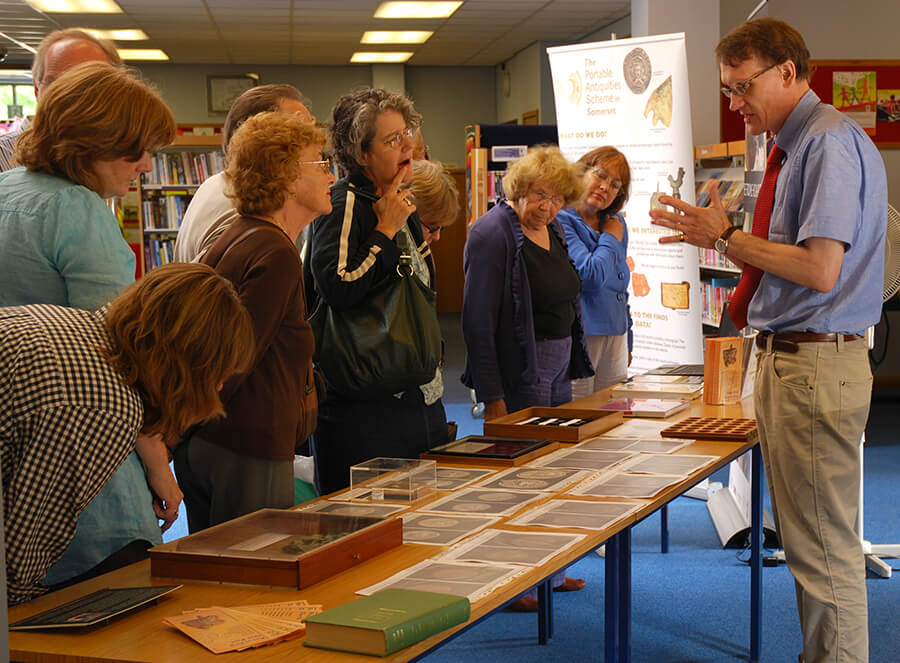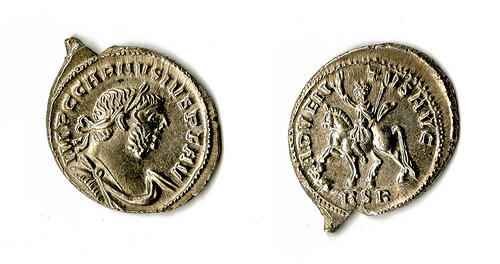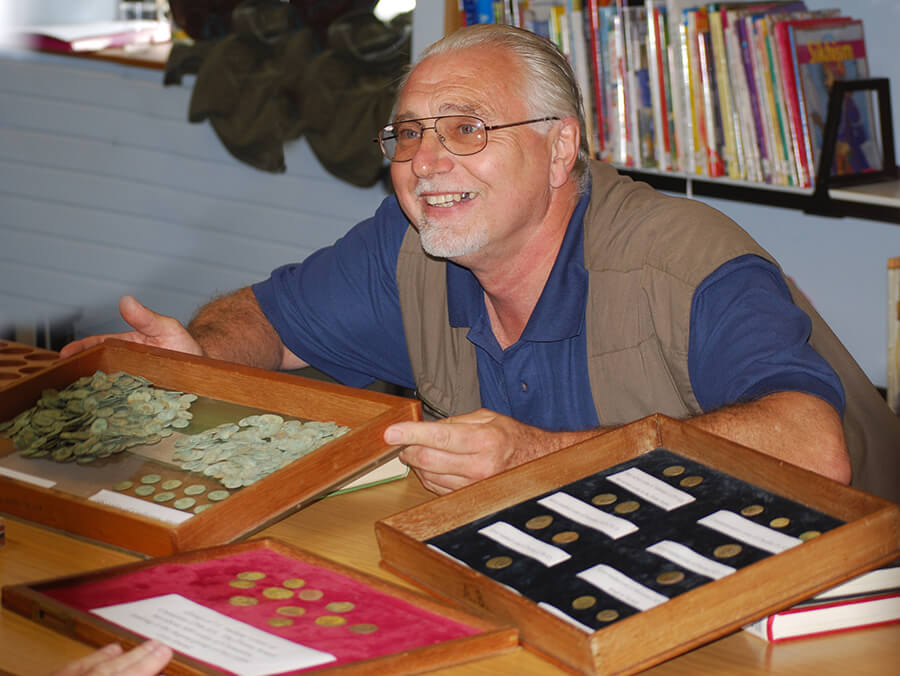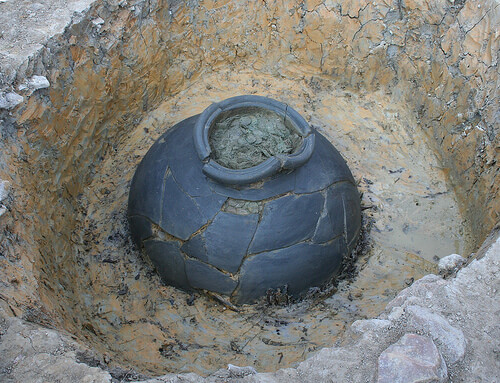Frome Hoard
The Frome Hoard is the largest coin hoard found in Britain to date, and the second largest treasure hoard. Discovered in 2010 by Dave Crisp, it comprises 52,503 Roman coins contained in a ceramic pot. It has been dated to the period AD 253 to 293.
Most of the coins are made from debased silver or bronze. The whole Hoard weighs around 160kg. Of the coins found, 44,245 were identifiable, with the remainder classed as illegible.
Although they were found close to Frome, there is no evidence that the town, despite its natural springs, was ever occupied by the Romans. There were villas in the locality but no community as such. The Frome hoard was buried on high ground which could be quite boggy after rain, suggesting a spring in the vicinity. This hoard was therefore probably a ritual deposit rather than a cache buried for recovery. The latest coins in the hoard were in fact halfway down the pot, so it was clear that the pot was placed in the ground and then filled from a selection of smaller containers, suggesting a local group making a communal offering.
Over 25 rulers are represented in the hoard, including several from a breakaway ‘Gallic’ Empire.
In 2017 the Frome Hoard was declared the nation’s favourite treasure find, following a vote by readers of the Telegraph. Unfortunately, however, the British Museum has not yet allowed any of the 52,503 coins is currently to be displayed permanently in Frome because of security and insurance concerns.
We are in the process of planning a replica display for 2024 that will help bring the glories of the Hoard to Frome until another solution is found.
The museum collection contains documentary information about the find that is available to view on request.

